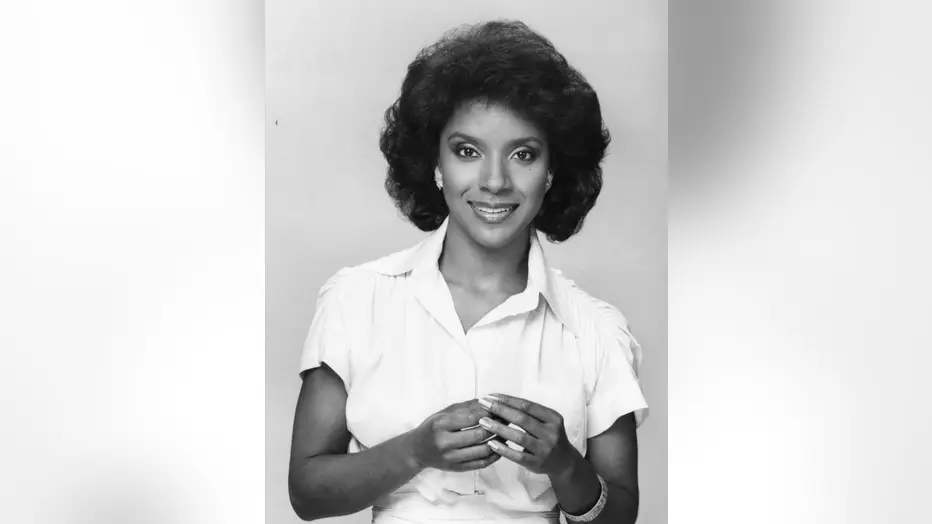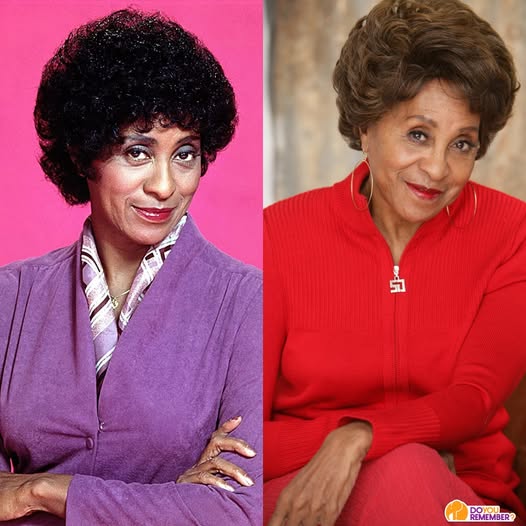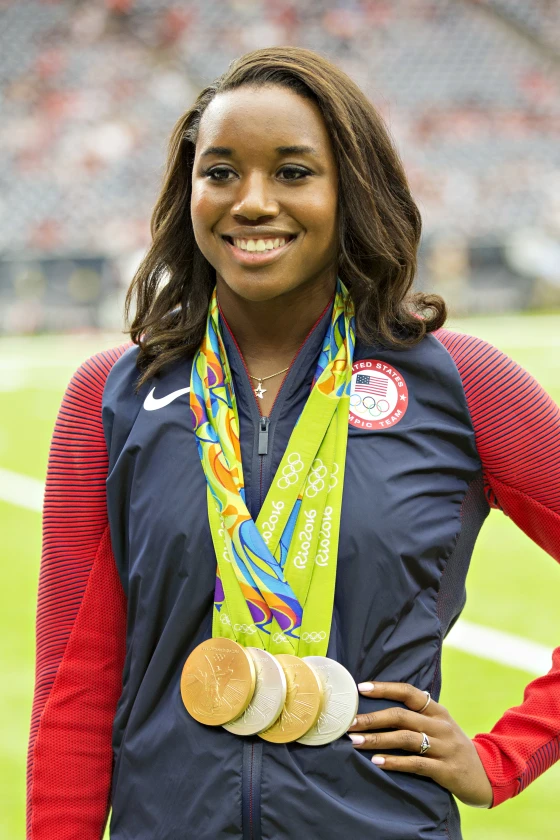When Angel Nathan considered which school to attend to earn a doctorate, she said Indiana University stood out because of its history of providing higher education opportunities to Black students.
This semester, Nathan is one of eight Black female doctoral students – out of 16 students total – in the IU School of Education’s Higher Education and Student Affairs program who are earning either a Ph.D. or an Ed.D. from IU Bloomington.
The doctoral program prepares students to work as administrators and scholar-practitioners in colleges and universities worldwide. Roots of the program’s development date to the 1920s, and degrees in student affairs have been awarded since the 1950s.
“Historically, HESA has had a strong tradition of enrolling and graduating Black doctoral students who have gone on to be prominent faculty and administrative leaders in higher education,” said Lucy LePeau, the Higher Education and Student Affairs doctoral program coordinator.
She said this group of graduating students follows the legacy of previous Black female graduates from the program, including the “Great Eight” in 2016.
A common thread among this year’s graduates is that their dissertations have focused on themes of racial injustice, race and education, cultural awareness, and disenfranchisement.
“The scholars are studying pressing issues in education and for society,” LePeau said. “These eight Black women scholars’ identities and lived experiences meaningfully influence how they frame their studies. They are using their dissertation research from multiple methodological approaches to disrupt inequities in education and to promote actionable change.”
Here’s a look at the personal and educational journeys, and doctoral research, of three of this year’s graduates:
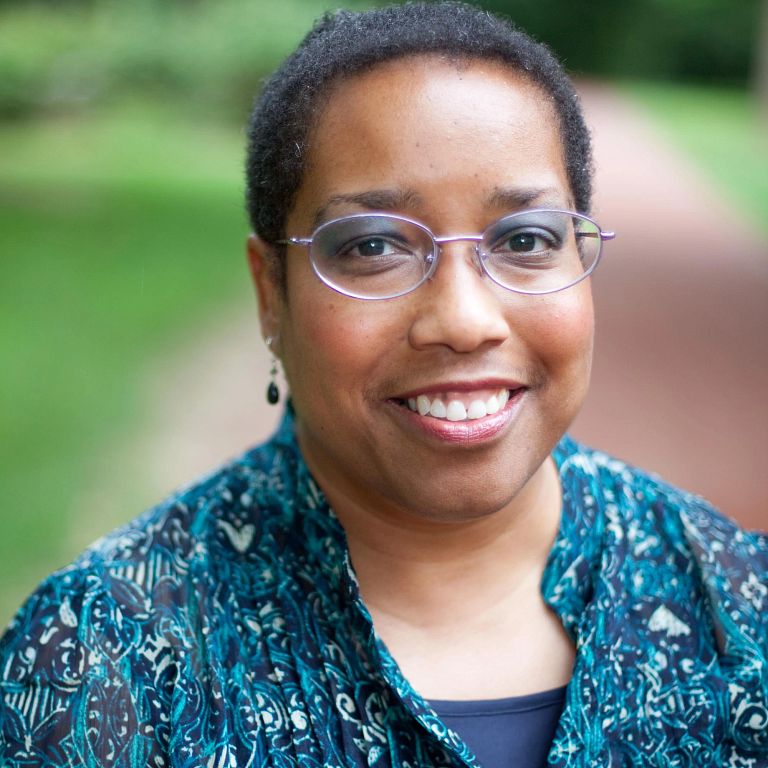 View print quality imageKrystie Herndon.Photo courtesy of the School of EducationKrystie Herndon
View print quality imageKrystie Herndon.Photo courtesy of the School of EducationKrystie Herndon
Krystie Herndon, 58, has had a different path to a doctorate than other students typically journey. She’s worked at Indiana University Bloomington for 32 years; for 14 of those years, she’s been a senior adviser in the College of Arts and Sciences, helping students in folklore and ethnomusicology, criminal justice, linguistics, and art history articulate the s𝓀𝒾𝓁𝓁s and knowledge they gain to the working world.
“It’s like being super mom with answers; I fell in love with the job Day One,” said Herndon, who also co-teaches a career readiness class in the Walter Center for Career Achievement.
She’s also worked in the Department of Spanish and Portuguese as a secretary, in the Mauer School of Law as a faculty secretary, in the Office of Admissions focusing on international admissions, and in the Recorder’s Office in the College of Arts and Sciences. She also earned a master’s degree in library science.
The long stay in Bloomington contrasts her 𝘤𝘩𝘪𝘭𝘥hood experiences. Herndon’s family moved frequently because of her father’s career in the U.S. Army. They lived in Kentucky, Alaska, Georgia, Germany and finally Maryland.
Herndon and her twin sister, Audrey, were built-in best friends, which helped with the moves, but they were competitors in the classroom and pushed each other academically. In high school, Audrey was valedictorian and Krystie the salutatorian. In college, that flip-flopped. Herndon said her free-spirited younger sister, Vicki, helped the twins to not be egotistical, but to practice love and inclusivity every day.
College was a new world for Herndon.
Growing up on Army bases meant Herndon lived in racially diverse settings. Attending Western Maryland College (now McDaniel College) meant meeting classmates who never had such an experience.
“I was nonplussed when I would hear students say they had never been to school with a Black student before,” she said.
Herndon earned degrees in English and Spanish, but followed an interest in ministry by spending a summer in Peru working with Australian missionaries and later as a member of Covenant Players, a traveling theater ministry. After marrying her fiancé, Herndon moved with him to Bloomington so he could complete his bachelor’s degree at IU.
Herndon’s love of folklore helped shape her doctoral research. Folklore involves the study of groups of people and their creative, communicative and artistic expression in everyday life, she said.
“People bring with them their backgrounds, traditions and culture,” she said, and the people they are with – such as social groups, work groups, friends and academic majors – influence their expression of culture.
Herndon said she wanted to research what undergraduate students were learning in folklore classes and the impact it was having on them. Her Ed.D. dissertation is “‘There’s a Lot More Culture in My Life Than I Thought’: Studying Folklore as Part of an Undergraduate General Education Curriculum.”
In January and February 2020, she interviewed 22 students who had just completed one of several fall 2019 folklore general education classes. She found that many developed a sense of self-reflection that made them re-evaluate how they have defined social groups and people.
“Each noted something that woke them up a bit in some form or fashion about their identities or how we conceptualize other people’s identities,” Herndon said.
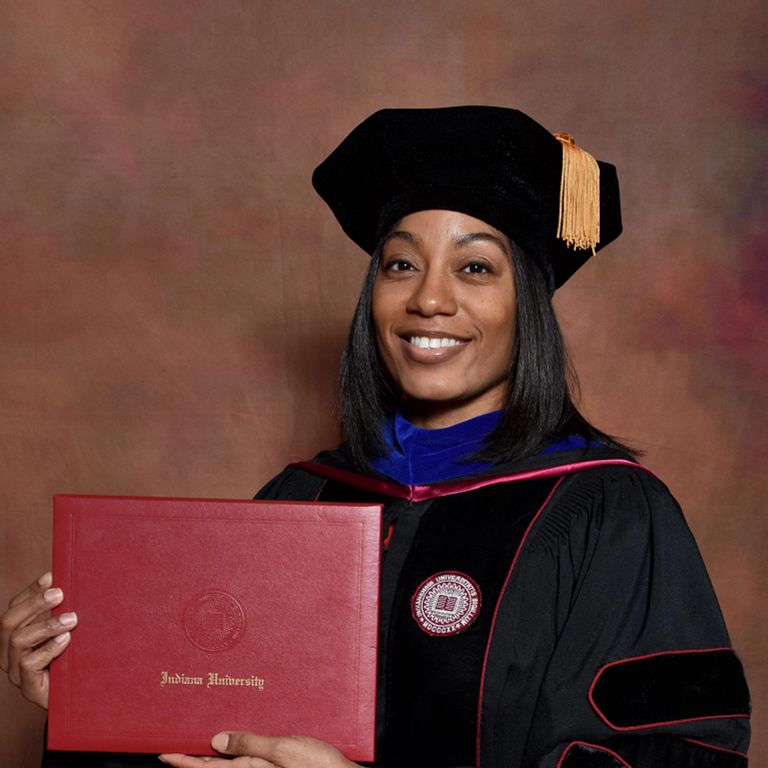 View print quality imageAngel Nathan.Photo courtesy of the School of EducationAngel Nathan
View print quality imageAngel Nathan.Photo courtesy of the School of EducationAngel Nathan
Nathan, like Herndon, grew up in a military family. Both parents were master sergeants in the U.S. Air Force, so the family moved from base to base before eventually settling in Atlanta. Life on military bases exposed her to racial and cultural diversity, but in Atlanta, which is predominantly a Black community, Nathan saw herself in a majority.
“I gained a deeper appreciation for the diversity within Black culture by seeing Black professionals in all walks,” she said.
Nathan, 40, said she always had an interest in communication while growing up, wanting to understand the way people talk, how they position things and the importance of language.
She has a Bachelor of Science degree in speech communication and rhetoric, an Advanced Bachelor of Journalism in advertising and a master’s degree in kinesiology from the University of Georgia. When she decided to pursue her goal of earning a doctorate, she said IU was an attractive choice because of its history of giving Black students opportunities for higher education, and of producing future presidents of colleges and universities. Nathan said she saw IU as a possible path to achieving her dream of becoming a college president.
Nathan arrived at IU in the fall 2015 and has been an associate instructor in the Department of Educational Leadership and Policy Studies. She taught one master’s class in leadership education and development, to help teach student leaders. Nathan also taught an undergraduate course in culture and diversity in higher education, which shows students the many facets of higher education, such as LGBTQ+ experiences, social justice, Black student issues and historical perspectives.
“You have to be versed and have a true understanding of what you are in charge of,” Nathan said.
The Aug. 11, 2017, incident at the University of Virginia, when violence broke out during a white supremacist march on campus, served as the inspiration for Nathan’s doctoral research. She was interested in how leaders of higher education institutions framed the event, how they addressed concerns of violence, pain, fear and racism, and which words they used.
Her Ph.D. dissertation title is “Know Your Role: The Positioning of Black Students Through Leaders’ Discourse in Higher Education.” Nathan examined the words, phrases and patterns used by higher education leaders in 106 speeches from Aug. 11 to Sept. 25, 2017. She examined speeches by leaders from 12 Midwestern schools, including IU.
“Racism is real,” Nathan said of her findings. “Many leaders gave acknowledgement that racism is real on or off campus, and that it exists even if people don’t talk about it.”
Most leaders encouraged students and campus communities to think through what happened, and talked about the importance of unity, Nathan said. But her research also looked at covert meanings of words, and whether the institutions – which have a responsibility to educate and protect students – were positioned against students. While some leaders talked about the importance of unity, they also talked about the importance of free speech. Hiding behind legal barriers only helps maintain systemic racism, she said.
Nathan said her research showed that some of the leaders’ words caused victimized student groups to relive the cultural trauma in order to make the larger white community feel better.
“When you work in the areas of diversity and education, it’s not just overt racism but also the language we use that positions Black students below institutional welfare,” Nathan said.
She said she’d like to publish her research and share it with scholars, and work at a research center and further focus on language.
“I want people to realize that language choice really matters as we talk more about making education more inclusive,” Nathan said.
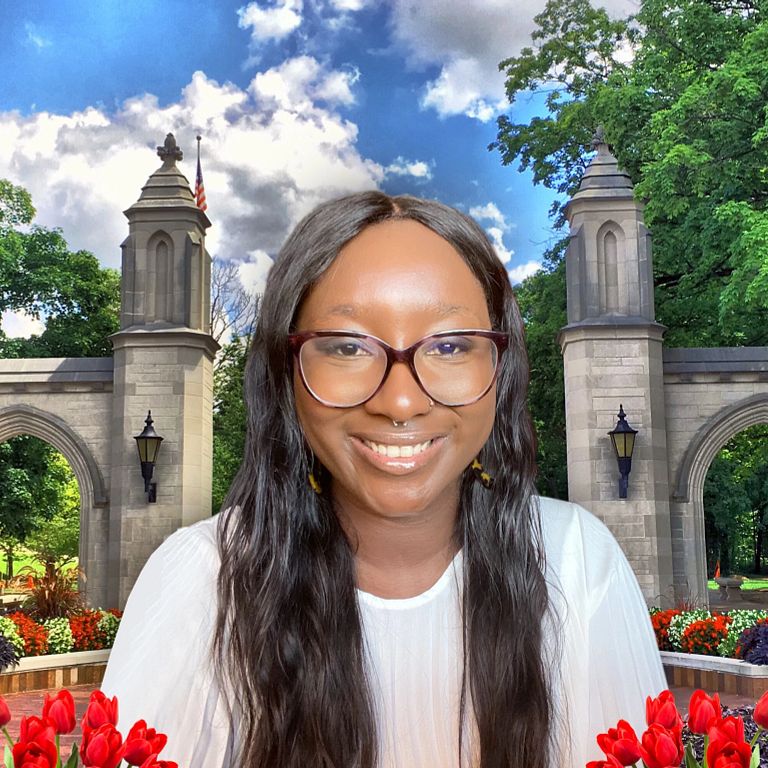 View print quality imageDajanae Palmer.Photo courtesy of the School of EducationDajanae Palmer
View print quality imageDajanae Palmer.Photo courtesy of the School of EducationDajanae Palmer
Dajanae Palmer, 28, grew up in Riverside, California, in a family that valued higher education. Her parents both earned undergraduate degrees, so going to college was expected of Palmer.
In high school, she excelled academically, earning an International Baccalaureate diploma. Palmer continued her studies at San Diego State University, where she earned a bachelor’s degree in psychology.
“That was an amazing, eye-opening experience,” Palmer said.
College provided the opportunity to become involved, meet new people and discover more about herself.
“College awakened my Black feminist identity and my cultural lens of higher education, and my wanting to help students with their college journeys,” Palmer said. “I knew this was a place I wanted to stay; I wanted to work on a college campus.”
It wasn’t until Palmer went to college that she began to rethink 𝘤𝘩𝘪𝘭𝘥hood experiences with microaggressions or racism. Meeting other Black students and hearing their stories gave Palmer the language to explain her experiences growing up, she said.
For example, she said an elementary school teacher insisted that her first name was being pronounced incorrectly because it didn’t follow the standard way of speaking English.
Palmer took a year off from school after earning her bachelor’s degree and used it to soul search. She didn’t want to pursue psychology, so she eventually enrolled at the University of Southern California to earn a master’s in education. She said her goal was to work in student affairs or as a college adviser because she wanted to be able to work with marginalized students.
While at USC, Palmer worked as a college adviser at Long Beach Polytechnic High School. She said she came to learn that there was a disconnect between what is assumed students know about college and career pathways, and what the students actually know. That gap factored into her decision to pursue a doctorate.
IU offered Palmer an assistantship with the Center for Postsecondary Research. She’s been a project associate for the National Survey of Student Engagement and has taught a lab in the Inquiry Methodology program.
The topic she chose for her Ph.D. dissertation was “I Got a Lot to Be Mad About: Sista Circles as a Counterspace for Black Women Doctoral Students.” Sista circles, which she became involved with at USC, are organic gatherings and collectives of Black women who support each other. Palmer said she wanted to highlight the kinship of Black women as they navigate their doctoral journeys, including any gender or racial microaggressions.
“I’m finding we all are sharing experiences with racism and 𝓈ℯ𝓍ism,” she said.
Palmer is applying for positions in higher education and said she would like to work with marginalized students.
“I want to help uplift and make changes,” she said.
